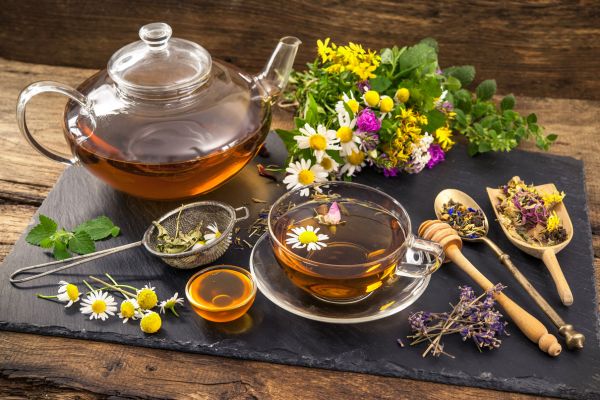In the fast-paced world we live in, getting a good night’s sleep has become increasingly challenging. Stress, screen time, irregular schedules, and various health issues can often interfere with our ability to fall asleep and stay asleep. While there are numerous remedies and over-the-counter solutions available, many people are turning to natural options that are both gentle and effective. One such remedy gaining widespread popularity is the use of herbal teas for sleep.
The Ancient Tradition of Herbal Teas for Sleep
Herbal teas have been used for centuries across cultures for their soothing and healing properties. From traditional Chinese medicine to ancient Greek remedies, herbs have always played a vital role in promoting rest and relaxation. Today, this time-honored practice continues, supported by both anecdotal evidence and scientific research that highlight the benefits of specific herbs in promoting restful sleep.
Unlike pharmaceutical sleep aids, herbal teas are generally non-habit forming and come with minimal to no side effects. This makes them an appealing option for those looking to enhance their sleep quality in a natural and holistic way. When brewed correctly and consumed regularly, herbal teas for sleep can become a powerful part of your nighttime routine.
How Herbal Teas Promote Sleep
Herbal teas work by engaging the body’s relaxation response. Many herbs contain naturally occurring compounds that interact with receptors in the brain to calm the nervous system, reduce anxiety, and lower stress levels. The warmth of the tea itself also contributes to a calming effect, helping to signal to the body that it’s time to wind down.
For example, certain herbs are known to increase the production of gamma-aminobutyric acid (GABA), a neurotransmitter that promotes relaxation and reduces the activity of nerve cells in the brain. This helps ease the transition from wakefulness to sleep. Additionally, the act of sipping a warm beverage before bed can serve as a comforting ritual, further preparing the mind and body for rest.
Popular Herbal Teas Known for Their Sleep-Inducing Properties
Among the vast array of herbal teas available, some stand out for their notable calming effects. Chamomile tea, for instance, is widely regarded as one of the most effective herbal teas for sleep. Its mild, floral flavor and calming effects have made it a bedtime staple for many. Chamomile contains apigenin, an antioxidant that binds to specific receptors in the brain, helping to initiate sleep.
Another highly effective herbal tea is valerian root tea. This herb has been used since ancient times to treat insomnia and promote restful sleep. Valerian root is known for its sedative properties, which are believed to increase GABA levels in the brain. While its earthy flavor may take some getting used to, its impact on sleep quality makes it a worthy addition to your nightly routine.
Lavender tea, with its sweet aroma and soothing taste, is another excellent choice. Lavender has long been used in aromatherapy to reduce anxiety and improve sleep, and its tea form offers similar benefits. Drinking lavender tea before bed can help calm the mind, ease tension, and create a peaceful environment conducive to rest.
Lemon balm, a member of the mint family, is another potent herb known for its calming effects. Studies have shown that lemon balm tea can help reduce symptoms of anxiety, elevate mood, and support healthy sleep patterns. Its slightly citrusy flavor also makes it a pleasant drink to enjoy before bedtime.
Creating a Bedtime Ritual with Herbal Teas
Incorporating herbal teas for sleep into your evening routine can be a transformative experience. Rather than simply drinking a cup of tea and heading straight to bed, consider turning the process into a mindful ritual. Begin by selecting your preferred herbal tea and brewing it slowly, allowing the aromas to fill the room and signal to your senses that it’s time to relax.
As you sip your tea, try to disconnect from stimulating activities. Turn off electronic devices, dim the lights, and engage in calming activities such as reading, journaling, or listening to soft music. The combination of herbal tea and a soothing environment creates the ideal conditions for your body to naturally transition into a restful state.
Consistency is key when using herbal teas for sleep. While you may notice immediate effects after the first few cups, long-term benefits are most apparent when the practice becomes part of your daily routine. Over time, your body begins to associate the taste and smell of the tea with sleep, reinforcing a healthy nighttime habit.
Understanding the Safety and Effectiveness of Herbal Teas
Although herbal teas for sleep are generally safe, it’s important to approach them with awareness. Certain herbs may interact with medications or may not be suitable for individuals with specific health conditions. For instance, valerian root should be used with caution if you are taking antidepressants or other sedatives. Pregnant or breastfeeding women should also consult a healthcare provider before using herbal teas.
To ensure effectiveness, always choose high-quality, organic herbal teas. Avoid blends that contain added sugars, artificial flavors, or caffeine. Reading labels and purchasing from reputable sources can make a significant difference in the overall benefit you receive.
Herbal teas should be viewed as a supportive aid rather than a cure-all. If you struggle with chronic insomnia or other serious sleep disorders, it’s important to consult a medical professional. However, for many, herbal teas for sleep can provide noticeable improvements in sleep quality when combined with healthy lifestyle habits.
The Growing Popularity of Herbal Teas for Sleep
With growing awareness around natural wellness and self-care, herbal teas have become increasingly popular in recent years. More people are seeking ways to unwind without relying on pharmaceutical sleep aids, and herbal teas offer a comforting and accessible solution. Whether you’re dealing with occasional sleeplessness or simply want to enhance the quality of your rest, exploring the world of herbal teas can open the door to deeper, more rejuvenating sleep.
Health stores, online retailers, and even local markets now offer a wide variety of herbal blends specifically formulated to support sleep. From single-ingredient teas like chamomile or lemon balm to carefully curated blends that combine multiple calming herbs, the options are plentiful. Experimenting with different teas can help you discover which one works best for your body and preferences.
Embracing Herbal Teas as a Path to Better Sleep
Incorporating herbal teas for sleep into your nightly routine is a gentle and nourishing way to care for your well-being. The soothing properties of herbs like chamomile, valerian root, lavender, and lemon balm offer a natural solution to restlessness and insomnia. Unlike quick fixes, herbal teas encourage a slow, mindful approach to sleep, helping you unwind and prepare for a peaceful night.
The path to better sleep often begins with small, intentional changes. By embracing the calming ritual of drinking herbal tea each night, you not only support your sleep but also foster a deeper connection with your body’s natural rhythms. So tonight, brew yourself a cup of your favorite herbal blend, inhale the comforting aroma, and let the calming magic of nature guide you into restful slumber.







